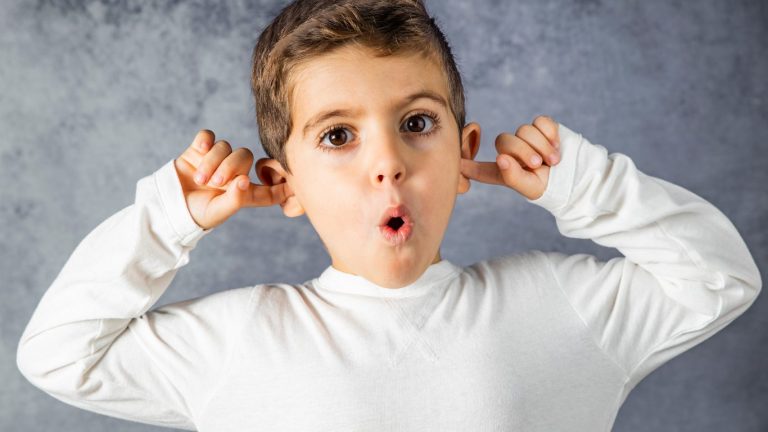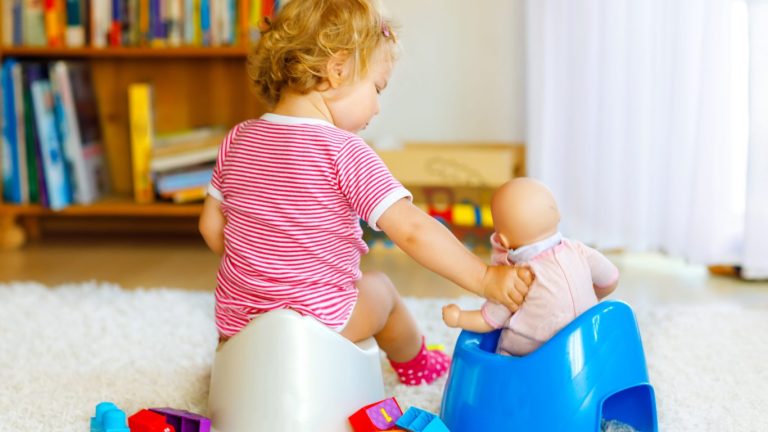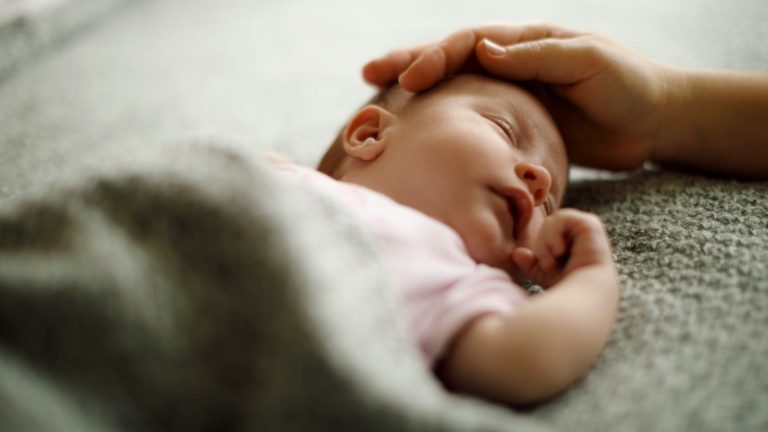All babies have their own unique and precious personality determined both by genetics and the environment they are born into. Because of this, children react differently to separation from their parents and this reaction can change from one week to the next. This article shares the different ways children can experience separation anxiety and how to deal with it.
What is separation anxiety?
Separation anxiety is when a child shows stress or anxiety when they are away from their parents. This could be during a significant separation, for example left for a few hours at an in-home childcare or just a short separation such as going into another room, but out of sight of your child.
Separation anxiety often peaks at around 8-9 months of age. This can mean that a child who was previously happy to go to unfamiliar people and happy for you to be out of sight, may suddenly begin to howl in protest. Some children may even get upset about being left with familiar people such as Grandma or Poppa who they have previously been settled with.
You can be reassured that you haven’t done anything wrong. This is a normal part of infant development. Your child is still developing the concept that people exist, even when we can’t see them and the concept of time.
Anxiety from your child’s point of view
Depending on your own parenting style and personality you may view this behaviour as frustrating. You may think, “why the fuss, I just left the room for a minute?” Remember you are the centre of your child’s world and it can be distressing for them when you go out of sight. When you leave, you know and understand where you are going and how long you will be. An infant doesn’t know either of these because in their mind, you have just gone.
Equally many parents find this stage very upsetting and are often on the verge of tears when they see their child’s trembling lip as they are about to head out the door. Children follow our lead so while it is really hard, watch your body language and voice as you are saying goodbye – if you appear anxious or upset this will intensify your child’s anxiety.
Preparing your child to prevent separation anxiety
A baby that has their needs consistently met with warmth and nurturing is more likely to feel safe and secure so there may be less anxiety around separation. This starts at a very basic level to develop trust and attachment – when a newborn has their needs meet by a responsive caregiver they learn, I am hungry, I get fed, I am upset, and I am comforted.
While you might not be able to prevent separation anxiety completely, there are strategies you can put in place to help minimise it.
- Get your baby used to other environments and other people – simple experiences such as going to the shops or library as well as more formal socialisation such as pre-school playgroups.
- When you are at playgroups or friend’s homes, put your baby on the floor to explore rather than always on your lap – this develops their confidence and independence.
- When possible have other family members bath baby or feed your baby. If you do all the routines for your child it will become a habit and harder for them to accept another person in this role.
- If your child starts to show early distress signs when being held by another rather than taking them back straight away because it reinforces the idea they can not be trusted. Instead, move next to them and reassure your baby in a soothing voice to show them you trust them so they can too.
- Play games of peek a boo. This age old game develops the idea of you can’t see me, and then you can again so baby learns even when they can’t see you, you still exist. Through simple play you are developing an understanding and trust that you will come back. You can stand behind a half open door of the room your child is in and play peek a boo from there.
Positive strategies for separation
- Always verbally prepare your child for separation. It could be a simple “I’m going to the kitchen to get your bottle”, or “Nana will be here soon to look after you”. As your child grows this will become an important part of the separation routine and has the added bonus of developing language skills.
- Start off with very short periods of separation. Move to a place where you can see your baby but they can’t see you just for a minute or so and then return. If your baby is in the midst of separation anxiety try going out and leaving your child with a known and trusted adult for just twenty minutes rather than half a day. You can make the time increasingly longer as your child sees and begins to trust that you come back and that they are safe without you.
- If you are planning on returning to work and your child is not comfortable with separation, you may need to have a plan of getting your child used to their new caregiver the month before. For example if you plan to use a nanny with an in-home childcare organisation like Footsteps, visit them with your child and leading up to your return to work increasing the frequencies and length of time.
Reducing anxiety at the time of separation
You may do all these things and your child may still be upset when you leave. Then what?
- When it is time to say goodbye be loving but quick – don’t drag it out. Hand your baby to your trusted person, give them a kiss and say “Bye bye for now, I will be back at 2 o’clock”. Wave goodbye with a smile and leave. Having the same ritual at each farewell will help your baby with this change. Try your best to appear relaxed!
- Write out a timed routine for your caregiver of your child’s usual day so as many aspects are familiar to your child as possible including any rituals you do such a singing a certain song at bed time or reading a favourite book.
- If you can, have care in your home so although there is change your child is at home where they feel most secure.
- If the home-based childcare is happening at someone else’s place, send along their own blanket and favourite toys.
- Some parents even leave their own worn tee shirt or pillow case for their child to cuddle or sleep with.
Anxiety around separation may come and go for your child with peaks and lows. When supported through this with calmness, understanding and love your child will come through it with a greater sense of trust, belonging and a growing sense of independence.





